I have created a GUI which computes a trajectory based on an external .m file.
When the user press the 'Calculate' button, the external .m function file gets called via the callback function of the button:
% calculateBtn button pushed function
function calculate(app)
numSteps = app.stepSlider.Value;
app.omega = app.omegaSpin.Value;
app.phid = app.phi.Value;
app.x0 = app.x0Spin.Value;
app.y0 = app.y0Spin.Value;
app.u0 = app.u0Spin.Value;
app.v0 = app.v0Spin.Value;
set(app.calculateBtn, 'Enable', 'off')
set(app.showBtn, 'Enable', 'off')
[app.Xc, app.Xi, app.C, T, f]=coriolis_traj(app.x0, app.y0, app.u0, app.v0, app.phid, numSteps);
app.fEdit.Value = num2str(f);
app.tEdit.Value = num2str(T);
set(app.calculateBtn, 'Enable', 'on')
if length(app.Xc)>1
set(app.showBtn, 'Enable', 'on')
else
set(app.showBtn, 'Enable', 'off')
end
end
The external file consists of the main loop of the computations.
while 1
% Counters
i = i + 1;
t = t + Dt;
theta = theta + Omega * Dt;
% Parcel's position
% on the inertial frame
x1 = x0 + Dt*u0;
y1 = y0 + Dt*v0;
% Parcel's position translated to the
% rotating frame
xc1 = x1*cos(theta)+y1*sin(theta);
yc1 = x1*sin(theta)+y1*cos(theta);
x(i) = x1 ; y(i) = y1;
xc(i) = xc1 ; yc(i) = yc1;
x0 = x1 ; y0 = y1;
[in] = inpolygon(xc,yc,xv,yv);
if ~in(i) > 0
break;
end
end
I want to stop the computation and clear the computed arrays when the user changes any of the values in 'Controls' panel, or when the button 'Break' is pushed.
How could I code this?
